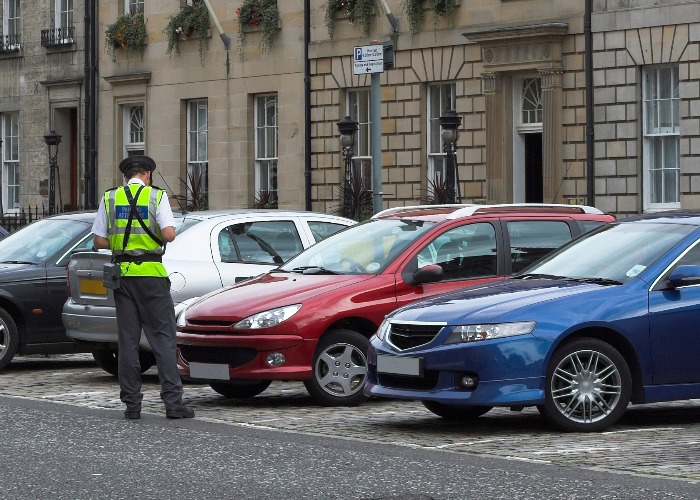Hundreds of thousands of parking fines ‘illegal’

Fines for overstaying are unenforceable, says legal expert
The RAC Foundation has released a report suggesting that “hundreds of thousands” of drivers could be due repayments after being illegally penalised for parking on private land.
In the legal opinion of John de Waal QC, the fines do not reflect a sensible level of compensation for a genuine loss, as parking companies are charging up to £100 or more per penalty ticket.
Compare car insurance deals with lovemoney.com
Without clamps
Clamping without legal authority was banned on private land in 2012, meaning that private operators could no longer prevent drivers from moving their vehicles until they paid the release charge.
However, drivers who stay longer than the duration of their ticket, park across bays or have otherwise broken the rules are still being slapped with parking tickets – the cost of which may be £100 or more.
The RAC Foundation is not arguing that issuing tickets is a completely unfair practice, but that the scale of the ticket's demands often does not fairly reflect the losses of a landowner because of the motorist’s actions.
The charges should be recognised as invoices, not fines, argues Mr de Waal, and they “are unlikely to count as genuine pre-estimate of loss; they should be seen by the Courts as penalties, which means they are unenforceable”.
Mr de Waal also says that early payment discounts, which put pressure on drivers to pay quickly or end up paying more, constitutes a “price escalation clause” to the contractual agreement between drivers and landowners which is agreed to when the driver parks their car on the land.
The Unfair Terms in Consumer Contracts Regulations 1999 states that a term which causes “significant imbalance in the parties’ rights and obligations… to the detriment of the consumer” should be regarded as unfair.
Mr de Waal says that a price escalation clause falls into this category, as people are generally only given 14 days in which to make the lower payment, and that doesn’t given them enough to time to investigate their legal position or take advice, while putting them in a position where they cannot risk not paying quickly by questioning the charge.
Unfair charges
The report from Mr de Waal cites the case of Màire, from High Wycombe, who got in touch with the RAC Foundation after being issued with a £100 penalty notice. She was delayed briefly on the journey back to her car when her three-year-old child became upset, but was told on appeal to the parking operator that her reasons were not sufficient and she would have to pay.
The car park cost just 20p per hour. She could have stayed for 500 hours – almost three weeks – for the cost of her parking ticket. So the penalty for her overstay just doesn’t add up.
Professor Stephen Glaister, director of the RAC Foundation, said that some parking operations have a business model which means they only make profit if members of the public overstay and can be charged an excessive penalty. In Màire’s case, the low hourly cost of the car park versus the cost of the ticket she received suggests she may have encountered one such operator.
Compare car insurance deals with lovemoney.com
Refunds for drivers
Professor Glaister says that in 2013, drivers in the UK may have been overcharged by around £100 million in total. If a judgement is passed in the High Court (or above) on the direct matter in question in a future case, then there will be legal precedent set which will define whether certain charges for overstaying in car parks are lawful or not.
If a High Court judge decides that such penalty charges were unfair and therefore unenforceable, drivers who have paid penalty notices in the past would have good cause to demand their money back from carpark operators.
For the time being, if you think you’ve received a ticket that isn’t fair or was issued incorrectly (in other words, you obeyed all the rules but still got ticketed), you can write to the operator disputing the ticket. Once you have done this, if you disagree with their response, you can make an appeal to Parking On Private Land Appeals (POPLA), submitting a statement with evidence to make your case.
If you opt to ignore the notice completely, the operator of the private car park will have to take you to court to try to get the fine enforced.
This article was written to provide information only and none of the above content constitutes legal advice. Legal advice for your individual situation should be sought from a solicitor registered with the Solicitors Regulation Authority. Find accredited solicitors near you using The Law Society’s database.
Compare car insurance deals with lovemoney.com
More from lovemoney.com:
Save up to £212 thanks to marriage allowance
Comments
Be the first to comment
Do you want to comment on this article? You need to be signed in for this feature